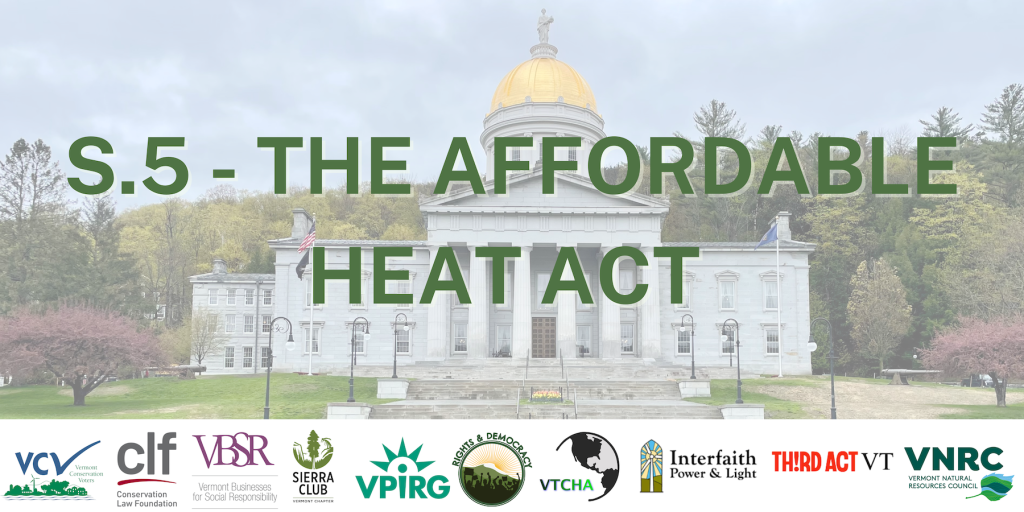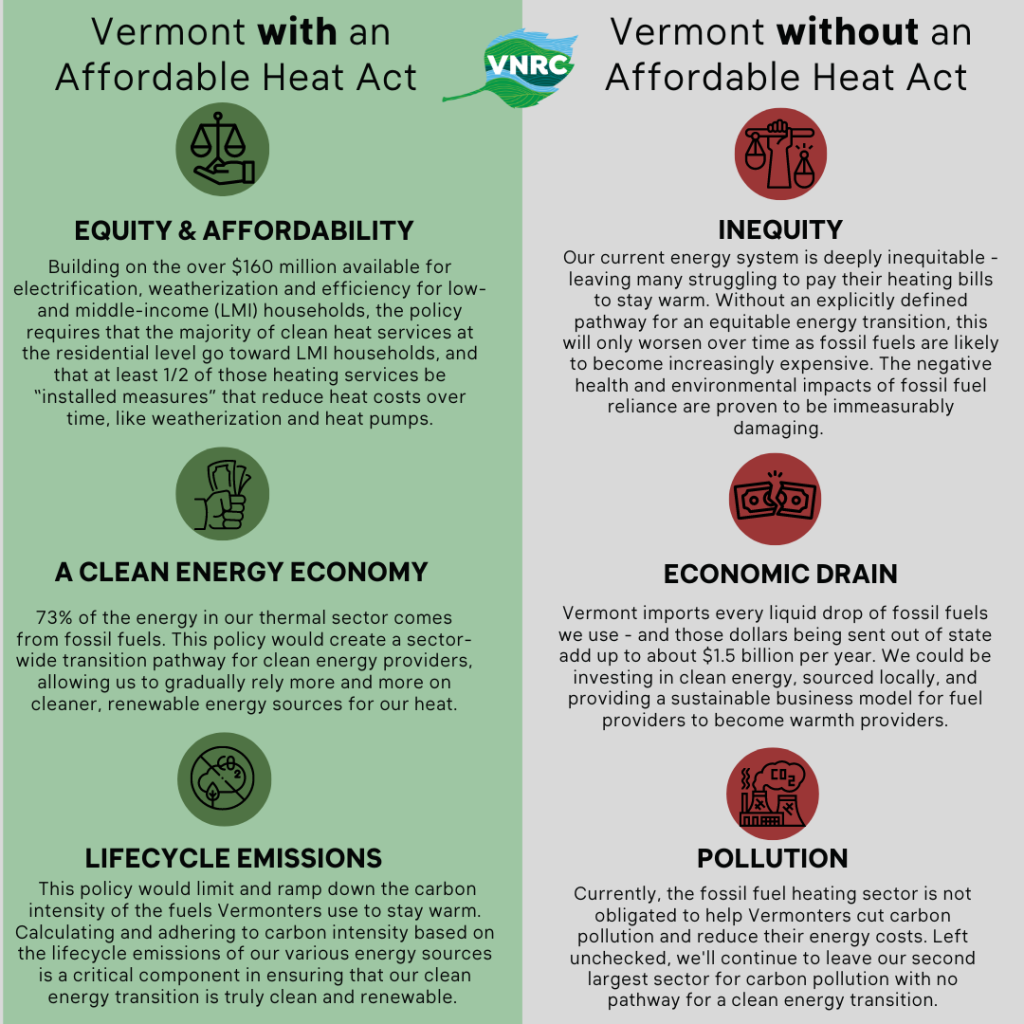
WHAT’S THE LATEST ON THE AFFORDABLE HEAT ACT?
The Affordable Heat Act (S.5) is a policy designed to ease the transition to clean energy by helping ensure that every Vermonter can access cleaner, more affordable heat — not just people who already have the resources to do so.
The Governor vetoed the bill, but both the House of Representatives and Vermont Senate voted to override the Governor’s veto, thereby enacting the bill into law. The policy’s enactment will launch a 2-year process to design the program, including robust opportunities for public engagement, as well as studies to ensure we better understand questions like how the program will impact energy costs. Then, before the program could go into effect, the 2025 Legislature will have to vote again to pass legislation to authorize the program to be implemented.
Below you can find much more information about the policy and how it can help ensure Vermont develops a program to successfully deliver all Vermonters more affordable, cleaner heat.
What is the Affordable Heat Act, and how will it help you?
The Affordable Heat Act will help Vermonters reduce their dependence on high-cost, price-volatile, and polluting fossil heating fuels. The Act does this by establishing a Clean Heat Standard that will reduce pollution over time, in line with science-based pollution-reduction requirements of the Global Warming Solutions Act.

To do so, fossil fuel importers will be incentivized to deliver cleaner heat options — primarily to low- and moderate-income Vermonters — and especially with solutions that cut costs over time, like weatherization, heat pumps, and advanced wood heat.
73% of the energy in the thermal sector comes from fossil fuels. This policy would create a blueprint for a sector-wide transition for Vermont’s thermal sector, saving Vermonters money and modernizing their heating for a changing world.
The Affordable Heat Act:
- Is a performance standard. The Affordable Heat Act would create a market mechanism intended to drive an equitable, gradual energy transition at the wholesale provider level. It will not create an additional cost for the average Vermonter on their heating bill through a tax, and it will not generate revenue for the State.
- Creates requirements for fossil fuel providers, not homeowners. No one is coming to take away our fossil fuel heating equipment nor will you be compelled or forced to transition if you don’t choose. Rather, this policy would incentivize the delivery of those cleaner energy options for fuel providers, so that they can become increasingly available and affordable for Vermonters who want cleaner, less price-volatile ways to heat their homes or businesses, other than fossil fuels.
- Will benefit the economy. A recent independent analysis estimated that, by 2030, the clean heat services that could result from the Act are estimated to reduce the overall heating costs of Vermonters by $2 billion, or an average of $7,500 per household. That is, in part, because Vermont imports all of the fossil fuels we collectively combust to heat and cool our homes and buildings – with over 70% of every dollar we spend on fossil fuels leaving the state each year.
Learn how the policy has notably improved from last session’s Clean Heat Standard bill here.
Other recent resources on S.5, An Affordable Heat Act:
- Energy Action Network’s Overview of S.5, and Frequently Asked Questions page
- VNRC and VCV’s April 2023 Climate Dispatch with Representative Kate Logan, member of the House Environment and Energy Committee, on improvements to the policy regarding equity
- VNRC and VCV’s March 2023 Climate Dispatch with Senator Becca White, member of the Senate Natural Resources & Energy Committee, on the policy advancing the Senate with a 19-10 vote
- 2023 Legislative landscape Webinar with VNRC & partners, overviewing the details of the Affordable Heat Act and answering questions, and providing resources
- VNRC, VCV and partners’ press release on the policy unanimously voted out of the Senate Natural Resources & Energy Committee
- Representatives Kathleen James and Seth Bongartz’s overview of S.5



